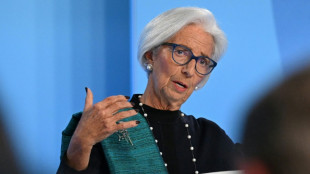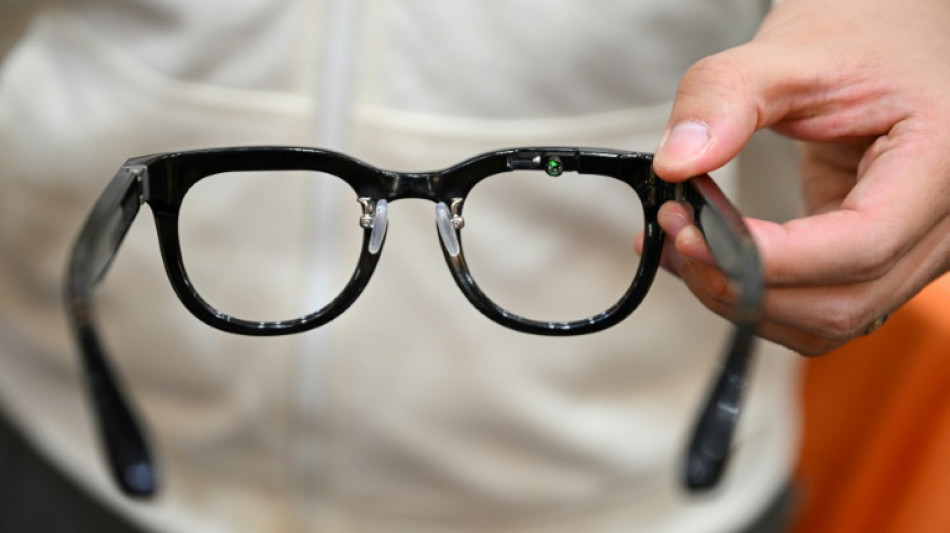
-
 Dominant Head moves into Bradman territory with fourth Adelaide ton
Dominant Head moves into Bradman territory with fourth Adelaide ton
-
Arsenal battle to stay top of Christmas charts

-
 Mexican low-cost airlines Volaris and Viva agree to merger
Mexican low-cost airlines Volaris and Viva agree to merger
-
Border casinos caught in Thailand-Cambodia crossfire

-
 Australia's Head slams unbeaten 142 to crush England's Ashes hopes
Australia's Head slams unbeaten 142 to crush England's Ashes hopes
-
Epstein files due as US confronts long-delayed reckoning

-
 'Not our enemy': Rush to rearm sparks backlash in east Germany
'Not our enemy': Rush to rearm sparks backlash in east Germany
-
West Indies 110-0, trail by 465, after Conway's epic 227 for New Zealand

-
 Arsonists target Bangladesh newspapers after student leader's death
Arsonists target Bangladesh newspapers after student leader's death
-
Volatile Oracle shares a proxy for Wall Street's AI jitters

-
 Tears at tribute to firefighter killed in Hong Kong blaze
Tears at tribute to firefighter killed in Hong Kong blaze
-
Seahawks edge Rams in overtime thriller to seize NFC lead

-
 Teenager Flagg leads Mavericks to upset of Pistons
Teenager Flagg leads Mavericks to upset of Pistons
-
Australia's Head fires quickfire 68 as England's Ashes hopes fade

-
 Japan hikes interest rates to 30-year-high
Japan hikes interest rates to 30-year-high
-
Brazil's top court strikes down law blocking Indigenous land claims

-
 Conway falls for 227 as New Zealand pass 500 in West Indies Test
Conway falls for 227 as New Zealand pass 500 in West Indies Test
-
'We are ghosts': Britain's migrant night workers

-
 Asian markets rise as US inflation eases, Micron soothes tech fears
Asian markets rise as US inflation eases, Micron soothes tech fears
-
Giant lanterns light up Christmas in Catholic Philippines

-
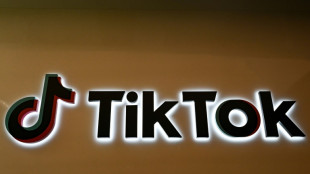 TikTok: key things to know
TikTok: key things to know
-
Putin, emboldened by Ukraine gains, to hold annual presser

-
 Deportation fears spur US migrants to entrust guardianship of their children
Deportation fears spur US migrants to entrust guardianship of their children
-
Upstart gangsters shake Japan's yakuza

-
 Trump signs $900 bn defense policy bill into law
Trump signs $900 bn defense policy bill into law
-
Stokes's 83 gives England hope as Australia lead by 102 in 3rd Test

-
 Go long: the rise and rise of the NFL field goal
Go long: the rise and rise of the NFL field goal
-
Australia announces gun buyback, day of 'reflection' after Bondi shooting

-
 New Zealand Cricket chief quits after split over new T20 league
New Zealand Cricket chief quits after split over new T20 league
-
England all out for 286, trail Australia by 85 in 3rd Test

-
 Australian announces gun buyback, day of 'reflection' after Bondi shooting
Australian announces gun buyback, day of 'reflection' after Bondi shooting
-
Joshua takes huge weight advantage into Paul fight

-
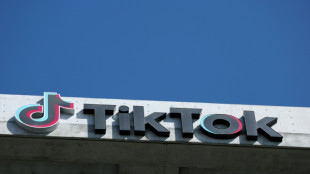 TikTok signs joint venture deal to end US ban threat
TikTok signs joint venture deal to end US ban threat
-
Conway's glorious 200 powers New Zealand to 424-3 against West Indies

-
 The European "Anti-Trend" Has Arrived
The European "Anti-Trend" Has Arrived
-
LEXINOVA Trading Center Releases New Brand Positioning Strategy Focused on Global Compliance and Institutional-Grade Infrastructure

-
 Guardian Metal Resources PLC Announces Pilot Mountain Pre-Feasibility Progress Update
Guardian Metal Resources PLC Announces Pilot Mountain Pre-Feasibility Progress Update
-
WNBA lockout looms closer after player vote authorizes strike
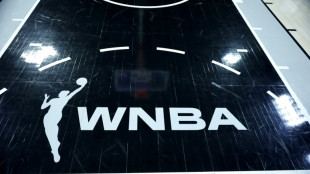
-
 Honduras begins partial vote recount in Trump-dominated election
Honduras begins partial vote recount in Trump-dominated election
-
Nike shares slump as China struggles continue
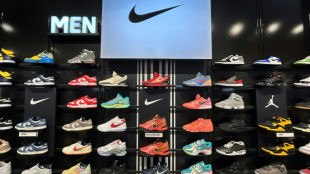
-
 Hundreds swim, float at Bondi Beach to honour shooting victims
Hundreds swim, float at Bondi Beach to honour shooting victims
-
Crunch time for EU leaders on tapping Russian assets for Ukraine

-
 Pope replaces New York's pro-Trump Cardinal with pro-migrant Chicagoan
Pope replaces New York's pro-Trump Cardinal with pro-migrant Chicagoan
-
Trump orders marijuana reclassified as less dangerous drug
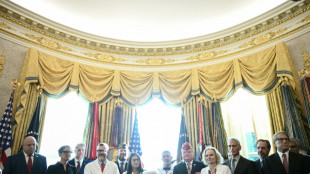
-
 Rams ace Nacua apologizes over 'antisemitic' gesture furor
Rams ace Nacua apologizes over 'antisemitic' gesture furor
-
McIlroy wins BBC sports personality award for 2025 heroics

-
 Napoli beat Milan in Italian Super Cup semi-final
Napoli beat Milan in Italian Super Cup semi-final
-
Violence erupts in Bangladesh after wounded youth leader dies

-
 EU-Mercosur deal delayed as farmers stage Brussels show of force
EU-Mercosur deal delayed as farmers stage Brussels show of force
-
US hosting new Gaza talks to push next phase of deal


Smart glasses enter new era with sleeker designs, lower prices
Producers of hi-tech connected eyewear are multiplying their innovations with increasingly discreet models in an attempt to make a difference in a highly competitive -- and fast-emerging -- market.
Live translation, GPS, cameras: glasses are quickly adopting new functionalities.
"There are so many of these smart wearables, and more of them are going on your face," said Techsponential analyst Avi Greengart at the Consumer Electronics Show (CES) in Las Vegas, where numerous smart glasses manufacturers showcased their latest innovations.
The industry has come a long way from its early days. Gone are the conspicuous protrusions of Google Glass and the bulky frames and cables of Epson's Moverio from the early 2010s.
Today's smart glasses, all paired with smartphone apps, increasingly resemble traditional eyewear. The Ray-Ban Meta, developed by Mark Zuckerberg's social media giant, currently leads the market with this new approach.
According to a recent MarketsandMarkets study, the sector's growth is "driven by advancements in augmented reality, artificial intelligence, and miniaturization technologies, which are pushing the boundaries of what these wearable devices can achieve."
However, integrating technology into fashionable frames requires careful compromise.
The Ray-Ban Meta, for instance, can capture photos and videos, play music, and provide information about objects in view, but doesn't offer augmented reality with superimposed images.
Meta representative Robin Dyer explained that while AR capabilities may come later, they would likely double the current price.
- 200 dollars -
Price is a major battleground in this market, particularly with the entry of Chinese manufacturers.
While Google Glass initially retailed for around $1,500 in 2013, today's smart glasses are approaching the price of premium conventional frames.
Meta's James Nickerson noted that their Ray-Ban collaboration starts at $300, just $50 more than standard Ray-Bans, offering "a cool camera" as a bonus.
Chinese startup Vue has pushed prices even lower, offering basic models with voice assistant and music capabilities for $200.
Some manufacturers, like XReal, focus on augmented reality, projecting smartphone, computer, or gaming console displays -- though this is a market for which Apple's VisonPro failed to create excitement last year.
For AR, recent advances help move away from the bulk of a virtual reality headset towards that of classic sunglasses, even if they require a cable to be connected to the device.
Meta's ambition is to launch its own pared down version, the Orion, currently in the test phase but not expected to be marketed until 2027 at the earliest.
- Chasing cool -
Companies like Even Realities and Halliday are pioneering ultra-thin frames that look identical to standard glasses while offering basic AR capabilities.
"If we want to make a good pair of smart glasses, we must first make a pair of cool glasses," emphasized Carter Hou, Halliday's second-in-command.
Halliday's $489 model, launching in March, displays text in the upper corner of the wearer's vision. Using AI, it can suggest responses during conversations, provide real-time translation, and function as a discrete teleprompter.
Even Realities has also taken a minimalist approach.
"We got rid of the speaker, we got rid of the camera," explained the company's Tom Ouyang. "Glasses are for the eyes, not the ears."
J.Williams--AMWN
